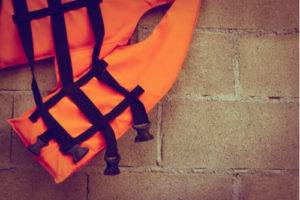 Florida is known for having some of the most registered boats in the country. When it’s summertime and the heat sinks in, many seek refuge in water sports like boating. Many people consider boating to be a relaxing pastime they enjoy with family and friends; and for some, drinking is part of that pastime. In Florida, however, a person may not operate a boat while under the influence of alcohol. If they are caught, they can face consequences that are nearly identical to those associated with a DUI in a vehicle.
Florida is known for having some of the most registered boats in the country. When it’s summertime and the heat sinks in, many seek refuge in water sports like boating. Many people consider boating to be a relaxing pastime they enjoy with family and friends; and for some, drinking is part of that pastime. In Florida, however, a person may not operate a boat while under the influence of alcohol. If they are caught, they can face consequences that are nearly identical to those associated with a DUI in a vehicle.
People who are charged with boating under the influence or BUI in Florida may be caught off-guard when they’re arrested. Clients who seek BUI defense in West Palm Beach often have several questions as they learn the differences between BUI and DUI.
What is the Difference Between a DUI and BUI in Florida?
The two offenses are very similar, but the State of Florida had to create a law unique to boating because of the mechanical differences between operating each device. Statute 325.35 of the Florida Statutes defines the charge of boating under the influence.
Determining the Operator of the Vehicle
In a DUI, the “operator” of the vehicle is the person in the driver’s seat, the person who was driving the vehicle or the person who was in actual physical control of the vehicle. For boats, defining the “operator” is a little different. The person operating the boat is the person in actual physical control and the person responsible for navigating the vessel. This helps clarify who may be considered the operator if no one is steering the boat when an incident takes place. If there is doubt as to who is responsible, the owner or renter of the boat will usually be considered the operator.
Inspection of the Vehicle
When it comes to boats, a police officer can stop you at any time to conduct an administrative inspection to check your boat’s registration and your ID. If they suspect you’re intoxicated, the officer may arrest you for BUI. When you drive a car, police officers cannot stop you to inspect your vehicle registration. They must have “reasonable suspicion” to pull you over and examine you for DUI.
What is the Legal Alcohol Limit on a Boat in Florida?
A BUI has the same legal limit as a DUI. At 0.08% BAC (blood alcohol content) or higher, you may be charged with a drunk driving or boating offense. This is the level at which your faculties are presumed to be compromised. Whether you showed poor judgement when operating your car or boat or not, at this BAC, you will receive an alcohol charge.
Florida’s BAC is the same as the national standard. Only 1 state — Utah — has a BAC that is below 0.08%. Police officers may also subject you to field sobriety tests to gauge the degree to which you are intoxicated. In a car, these tests may include the walk-and-turn test; however, on a boat, the investigating officer may request a different test.
What are the Penalties for a BUI in Florida?
BUI is a serious misdemeanor offense like DUI. If you’re convicted of BUI in Florida for the first time, your first offense BUI may lead to:
- A fine of $500-$1,000
- Up to 6 months in jail
- Both of the above
If you’re on your second BUI conviction, your penalties increase to:
- A fine of between $1,000 to $2,000
- Incarceration for up to 9 months
- Both of the above
Allow DUI attorney Brian P. Gabriel to help you fight your BUI charge in West Palm Beach. At The Law Office of Gabriel & Gabriel, Mr. Gabriel has extensive experience helping clients protect themselves from harmful alcohol charges, including BUI.
Should I Hire a Lawyer for a BUI Charge in West Palm Beach?
The answer to this question is a resounding Yes! An experienced criminal defense lawyer like Brian P. Gabriel, who has more than 30 years of defending clients in Palm Beach County, can make a world of difference in the resolution of your case. Attorney Brian Gabriel has led many efforts to challenge DUI breath test results throughout his career. If your BAC results may hurt your case, find out how he can challenge your BUI charge.
Call (561) 622-5575 for a free consultation or complete a contact form.


